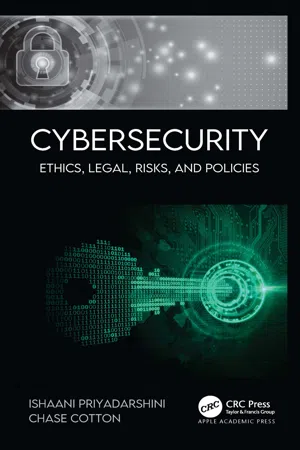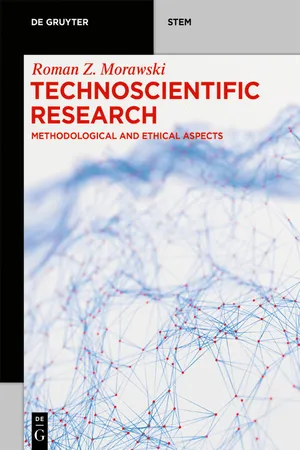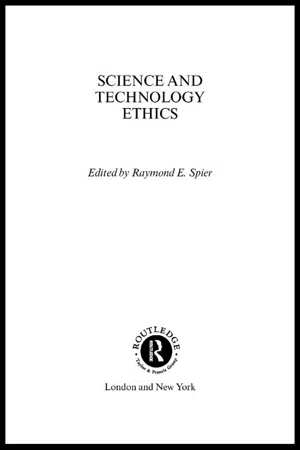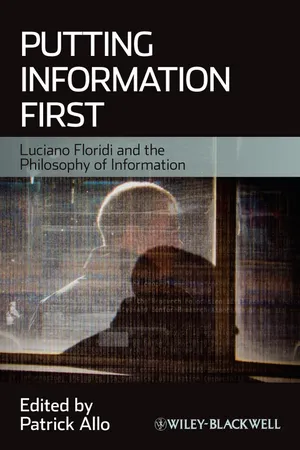Computer Science
Legal Issues Computer science
Legal issues in computer science refer to the laws and regulations that govern the use, development, and distribution of software and hardware. These issues include intellectual property rights, privacy concerns, cybersecurity, and liability for damages caused by software or hardware failures. It is important for computer scientists to be aware of these legal issues to ensure that their work is ethical and compliant with the law.
Written by Perlego with AI-assistance
Related key terms
4 Key excerpts on "Legal Issues Computer science"
- eBook - ePub
Cybersecurity
Ethics, Legal, Risks, and Policies
- Ishaani Priyadarshini, Chase Cotton(Authors)
- 2022(Publication Date)
- Apple Academic Press(Publisher)
Cyber law is worried about the law governing the Internet. It addresses several issues like cybercrimes, electronic commerce, IP and dataprotection, and privacy. Cybercrime predominantly deals with computer crimes, computer-related crimes, and computer abuse. E-commerce involves electronic data used in commercial transactions. Electronic commerce laws are responsible for addressing issues of data authentication by electronic and/or digital signatures. IP deals with copyright law pertaining to computer software, computer source code, websites, etc., software, and source code licenses, trademark law with respect to domain names, semiconductor law which highlights the protection of semiconductor integrated circuits design and layouts, and patent law concerned with computer hardware and software. Data protection and privacy laws are responsible for addressing legal issues that emerge while gathering, putting away and communicating sensitive personal information. This is usually done by data controllers like banks, hospitals, email service providers, etc.Due to the advancement in technology, especially cybersecurity, it may be said that current criminals can take more with a computer than with a firearm, and tomorrow’s terrorists might have the option to accomplish more harm with a keyboard than with a bomb [44 - eBook - ePub
Technoscientific Research
Methodological and Ethical Aspects
- Roman Z. Morawski(Author)
- 2019(Publication Date)
- De Gruyter(Publisher)
Both individual computers and computer networks (local, regional and global) can be used to commit common crimes, to violate privacy or to conduct espionage. They can cause damage to individuals or institutions if the software does not work as expected, because of a programmer’s error or his deliberate action; they can perform sophisticated logical and mathematical operations whose correctness cannot be checked by anybody. Computer ethics is to determine to what extent and in what situations we can trust computer systems, and what restrictions should be imposed on their use. IT means can be used for performing illegal operations, being serious ethical violations, which are, however, neither specific to the scientific community nor very frequent among its members; therefore, they will not be discussed here.The spectrum of IT-related ethical issues is systematically expanding with the development of IT, and it is increasingly more and more identified with the spectrum of ethical issue related to the infosphere. This is because the social impact of the IT development is becoming more and more recognised, and – consequently – ethical demands regarding the “ecological” management of the infosphere are more and more explicitly articulated. The relevant public debates focus on such issues as:- – the IT-induced evolution of the social context in which ethical problems, unrelated to technology, appear and are solved;
- – the increase in the objective scope and subjective sense of anonymity of operations performed on information;
- – the fuzzification of responsibility and increased sense of impunity for unethical processing of information.
The diversity of IT-related ethical issues and the inevitability of their appearance in everyday research practice are illustrated with the following series of examples. The common source of this diversity and inevitability is the extraordinary logical plasticity of computers933 and computer networks as tools for solving theoretical and practical problems in very diverse areas and in various social contexts.Example 19.1: Already in the 1980s, computers were used during the US presidential election for counting votes and forecasting the result of the election. Already at that time, the question was asked if it was acceptable that some voters knew the forecasts (disseminated by radio and television) before voting934 . This may seem an innocent exercise after scandalous involvement of the UK-based political consulting company Cambridge Analytica in the US presidential election in 2016. This company used in the election campaign personal information about ca. 50 million Facebook users, acquired by an external researcher who claimed to be collecting it for academic purposes. In May 2018, under pressure of public criticism, the company had to stop its operations and declare insolvency935 - eBook - ePub
- Dr Raymond E.Spier, Raymond E. Spier(Authors)
- 2003(Publication Date)
- Routledge(Publisher)
Simon RogersonIntroduction
Advances in computer technology, coupled with the growing convergence of computing, telecommunications and mass media, present many opportunities and dangers to individuals, organizations and society as a whole. Computers can be shaped to do any activity that can be described in terms of inputs, transforming processes and outputs. It is the nearest thing to a universal tool (Moor 1985). Consequently, society and its organizations are becoming more dependent upon computer technology. There is an increasingly wider access to, and wider application of, this powerful resource. Those responsible for the development and application of computer technology are faced with decisions of increasing complexity which are accompanied by many ethical dilemmas. Moor (1985) and Maner (1996) explain that computer technology is a special and unique technology, hence the associated ethical issues warrant special attention. Indeed, Tucker (1991) points out that there is a need to understand the basic cultural, social, legal and ethical issues inherent in the discipline of computing. Furthermore, Gotterbarn (1992) suggests that professionals must be aware of their professional responsibilities, have available methods for resolving non-technical ethics questions and develop proactive skills to reduce the likelihood of ethical problems occurring.The nature of computer ethics
The field of computer ethics is evolving and has been defined in different ways. Walter Maner, who coined the term ‘computer ethics’ in the mid-1970s, defines computer ethics as representing a new field of applied professional ethics dealing with problems aggravated, transformed or created by computer technology. Deborah Johnson (1985) defines computer ethics as being the study of the way in which computers present new versions of standard moral problems and dilemmas, causing existing standard moral norms to be used in new and novel ways in an attempt to resolve these issues. James Moor (1985) defines computer ethics as the analysis of the nature and social impact of computer technology and the corresponding formulation and justification of policies for the ethical use of such technology. He suggests that it addresses policy vacuums and conceptual muddles brought about by the advancing technology. Finally, Terrell Ward Bynum (1997a) suggests that the overall goal of computer ethics is to integrate computing technology and human values in such a way that the technology advances and protects human values, rather than doing damage to them. - eBook - ePub
Putting Information First
Luciano Floridi and the Philosophy of Information
- Patrick Allo(Author)
- 2011(Publication Date)
- Wiley-Blackwell(Publisher)
Chapter 7 ABSTRACTION, LAW, AND FREEDOM IN COMPUTER SCIENCE TIMOTHY COLBURN AND GARY SHUTE IntroductionDespite its title, this chapter has nothing to do with legal, moral, or political issues. Had the title been “Abstraction, Law, and Freedom in Cyberspace ,” it no doubt would have had something to do with such issues, since it would have been about the behavior of people. But our concern is with computer science as a science, and since the subject matter of computer science is interaction patterns among various computational abstractions, we address the concept of “law” in the scientific, rather than the legal, sense.Our topic bears on Luciano Floridi’s work in philosophy of information in two ways. First, to understand the role of law in computer science, one must understand the world in which computer scientists work, a world consisting primarily of abstractions. Floridi, acknowledging a certain debt to computer science, has recently advocated for “the method of levels of abstraction” (Floridi 2008a) as an approach to philosophical investigation in general. Second, our investigation into the concept of law in computer science reveals a paradigmatic case of Floridi’s “informational nature of reality” (Floridi 2008b). In characterizing reality informationally, Floridi appeals again, in part, to a computing discipline—namely, software engineering and its current focus on object-oriented programming. It is fruitful to consider, while we explicate our account of abstraction and law in computer science, whether it impacts the related but more general philosophical claims of Floridi.As a science that deals essentially with abstractions, computer science creates its own subject matter . The programs, algorithms, data structures, and other objects of computer science are abstractions subject to logical—but not physical—constraints. We therefore expect its laws to be different in substantial ways from laws in the natural sciences. The laws of computer science go beyond the traditional concept of laws as merely descriptive , allowing prescriptive
Learn about this page
Index pages curate the most relevant extracts from our library of academic textbooks. They’ve been created using an in-house natural language model (NLM), each adding context and meaning to key research topics.



